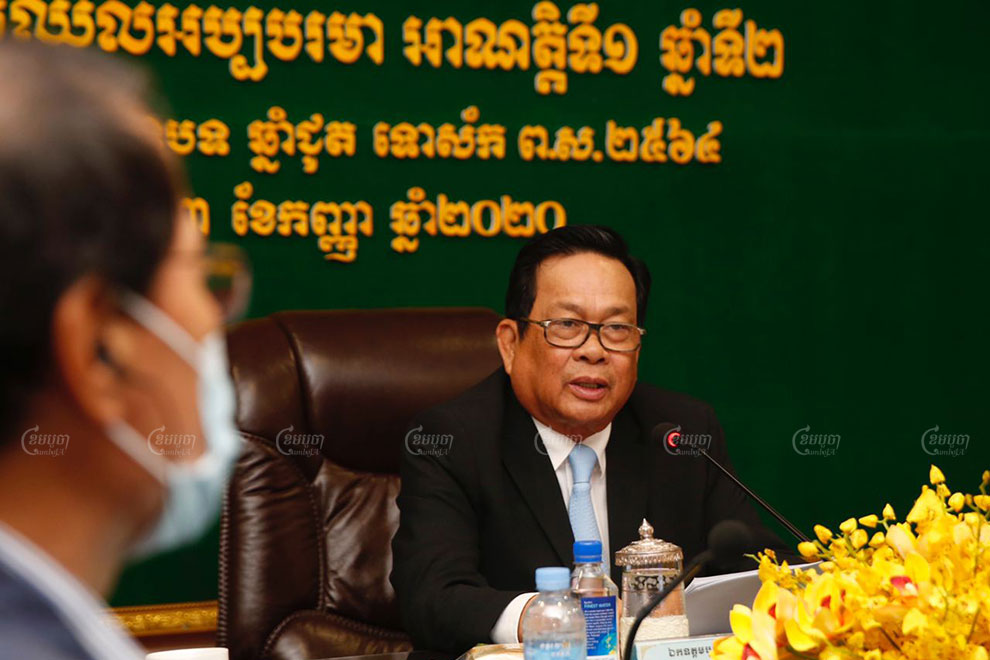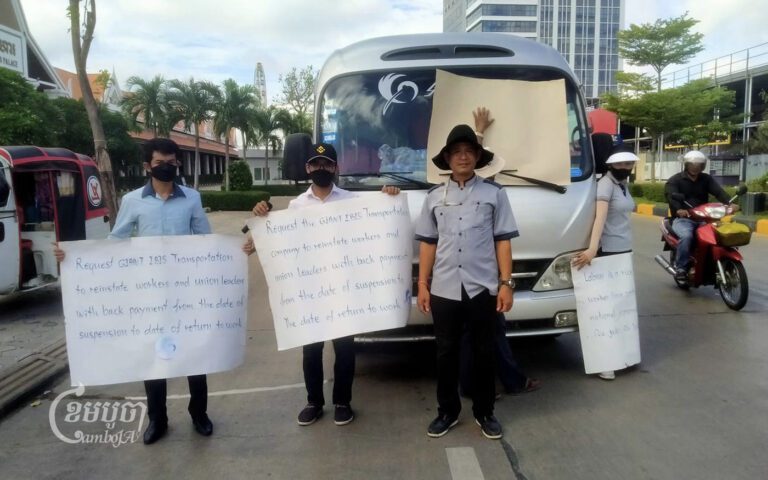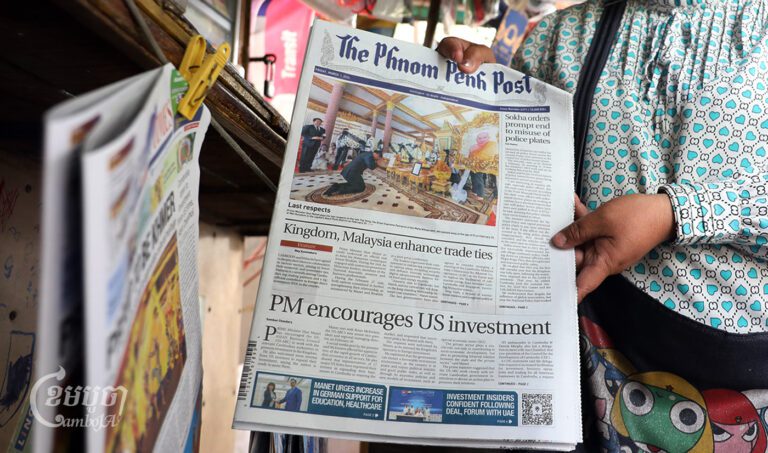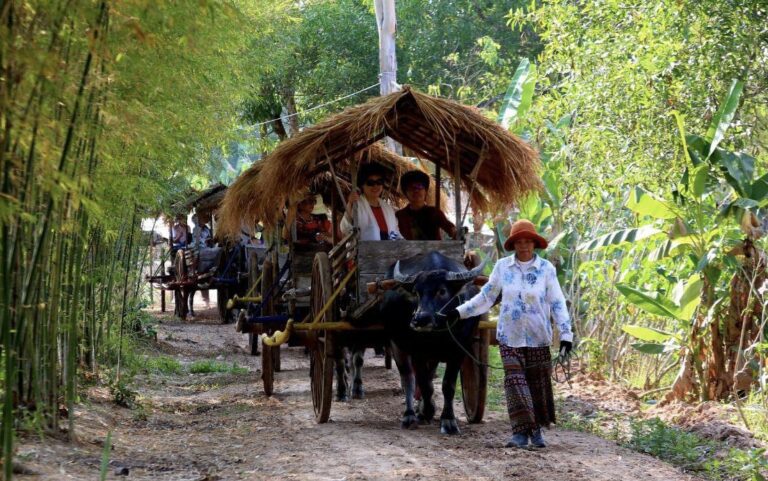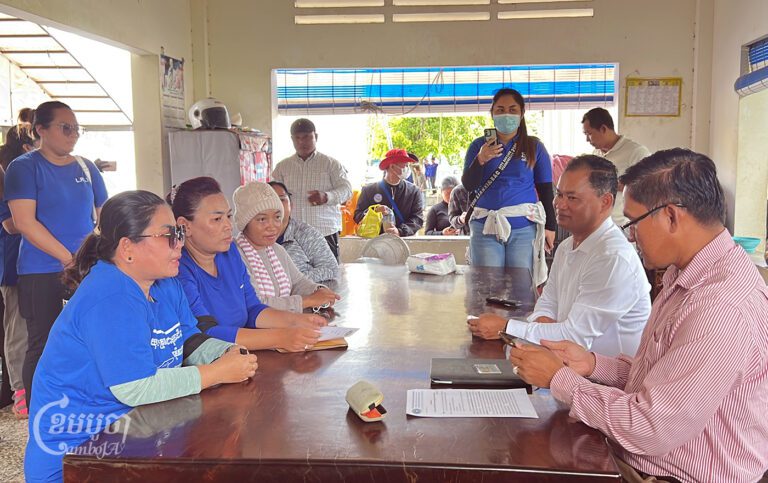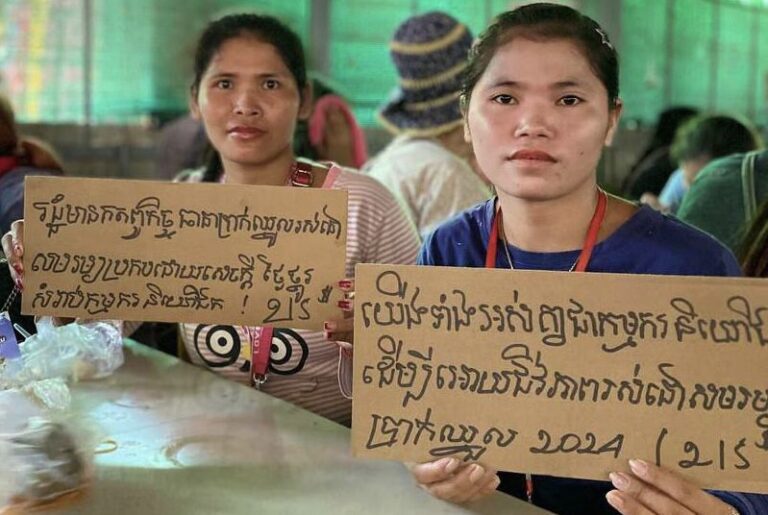The first three-party meeting to set the minimum wage for garment and footwear industry workers for 2021 was held September 3, with employer representatives seemingly looking to avoid a raise due to economic struggles in the wake of Covd-19, and unions proposing a nearly $12 increase.
The minimum wage will be determined at the end of a round of meetings between unions, the Garment Manufacturers Association in Cambodia (GMAC) and the Labor Ministry, which will continue on September 9 and 10.
Pav Sina, president of the Collective Union of Movement of Workers, said he expected this year’s meeting to focus on Covid-19 and the partial withdrawal of tariff-free trade with the European Union under the Everything But Arms Agreement.
Sina said that in the meeting, GMAC requested that the minimum wage be cut but GMAC members have said they will not divulge their suggested raise until the final day of meetings on September 10.
“Even if there were no extra challenges this year, in previous years the employers’ party has always made it difficult to increase the minimum wage, so we are not surprised at the employers stance,” Sina said.
However, he said information on the industry’s production output and the country’s projected inflation rate provided by the Labor Ministry at the first meeting had painted a positive picture, giving him hope that a raise would be possible.
“Even though this year was difficult, we hope that there will be positive results [of the minimum wage discussion] for workers,” Sina added.
Union leaders held an internal meeting on August 28 to choose their desired minimum wage raise, agreeing on $11.59, which is similar to their requests in previous years, and amounts to a 6.1 percent raise.
The minimum wage affects about 800,000 workers from more than 1,000 factories in the textile, garment, and footwear industries and was set at $190 per month for 2020.
Mann Seng Hak, vice president of the Free Trade Union said that ahead of the second three-party meeting on September 9, union representatives would gather to discuss progress made in the first meeting.
“Our union party will hold an internal meeting to discuss the figures for detail at the Labor Ministry on September 7,” Seng Hak said.
Seng Hak reiterated that in the first meeting, employers had emphasized the toll Covid-19 has taken on the industry without indicating their specific stance on the minimum wage, and that Heng Sour, spokesperson for Ministry of Labor had pointed out that some other regional countries had delayed their wage talks, or chosen not to approve a raise.
Labor Minister Ith Samheng, who is presiding over the talks, told reporters after the meeting that the ministry would present the employers and unions with the necessary data so they will be able to make an accurate judgement based on social and economic factors.
“We reviewed social and economic factors and how Covid-19 has impacted our social and economic issues, and the problem of workers’ unemployment and problems linked to their income and health,” Samheng said.
“We also have to be willing to discuss with each other in a responsible and constructive spirit,” Samheng said.
Samheng added that so far, the parties had not backed down from their requested wage figures yet, but discussions will continue until an appropriate wage is agreed on.
“We set a schedule to continue meeting on September 9 and we will finish on September 10 before Pchum Ben Day,” Samheng said. “I hope that we will have a result for workers before Pchum Ben day.”
Nguon Channara, deputy secretary general of the Cambodia Footwear Association, said the employer representatives had not decided on a wage offer, and would wait until the upcoming meetings.
“This session, we have not decided yet, but we listened carefully to each of the parties, so on September 9 we will make some progress,” Channara said after attending the meeting. “This time, the problem of Covid-19 and some other problems are causing factories to struggle.”
According to a GMAC statement, as of June this year, about 400 factories have suspended operations and more than 150,000 workers lost their jobs due to the global Covid-19 outbreak.
GMAC Deputy Secretary-General Kaing Monika could not be reached for comment on September 3, but he said on August 31 that Cambodia, like many other countries around the world, has faced an economic crisis due to Covid-19, a situation that has been exacerbated by the partial withdrawal of the EBA.
“According to the two crises, the figure of export [of products from the garment factories] has declined a lot,” he said. “So if we analyze this normally, a minimum wage increase, especially to the amount raised by the unions, is not realistic.”
He said the minimum wage should be set based on research provided by the National Institute of Statistics, which provides assessments of social and economic factors.
Ken Loo, Secretary-General of GMAC could not be reached for comment on Thursday.


